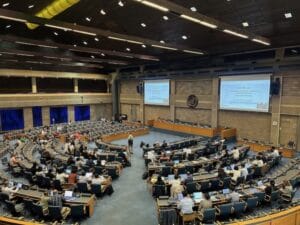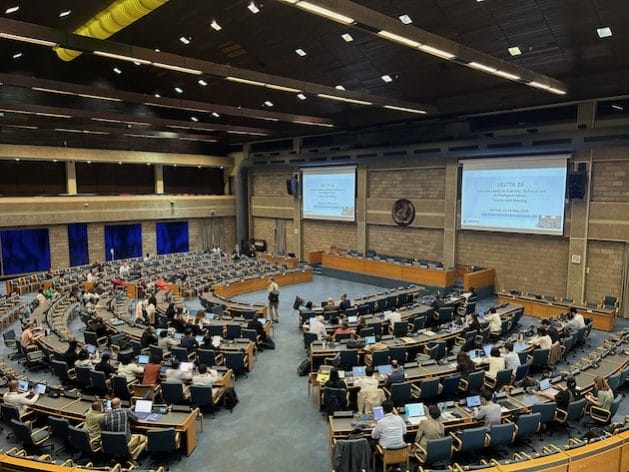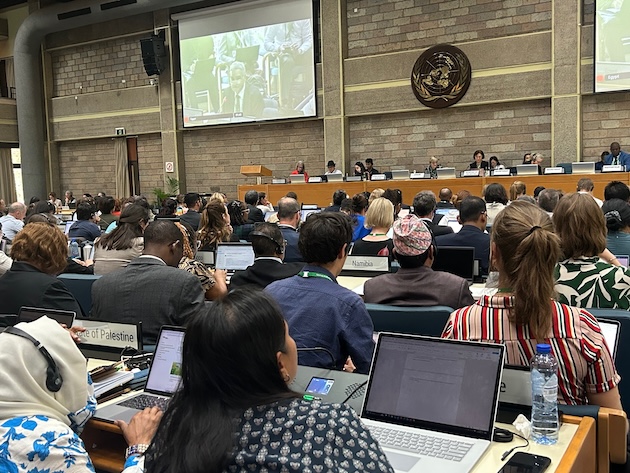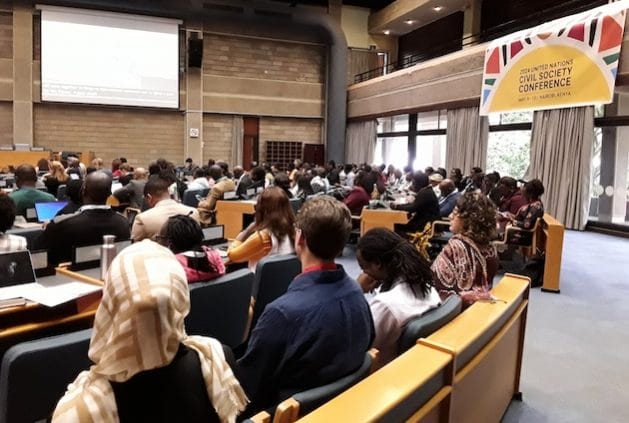
Civil Society, Climate Change, Crime & Justice, Economy & Trade, Education, Featured, Headlines, Labour, Latin America & the Caribbean, Migration & Refugees, TerraViva United Nations

Credit: Johan Ordoñez/AFP via Getty Images
– Regional experts called it Panama’s most important election since the 1989 US invasion that deposed de facto president General Manuel Noriega. Panamanians went to the polls amid high inflation and unemployment, with a stagnating economy. Endemic corruption was also high on their long list of concerns, along with access to water, education and a collapsing social security system.
The winner, conservative lawyer José Raúl Mulino, was a stand-in for former president Ricardo Martinelli, disqualified from running due to a money laundering conviction. Martinelli remains popular regardless and managed to transfer his popularity to his less charismatic substitute. For those who backed Mulino, nostalgia for the economic stability and growth that marked Martinelli’s pro-business administration seemed to outweigh his proven record of corruption.
On the face of it, the election results seemed to demonstrate the primacy of economic considerations in voters’ minds, with hopes for growth trumping corruption fatigue. But that’s not the whole story.
Free, fair and uncertain
On 5 May, Panamanians went to the polls to elect a president and vice-president, 71 National Assembly members, 20 Central American Parliament deputies and local representatives.
The elections were undoubtedly clean and transparent, with integrity guaranteed by the participation of civil society in the National Scrutiny Board. Results were announced quickly and all losing candidates accepted them. But the pre-voting context was far less straightforward. Until the very last minute the now president-elect wasn’t sure he’d be allowed to run.
Mulino served as security minister in Martinelli’s government between 2009 and 2014. Ten years later, largely unknown to the electorate, he entered the race as Martinelli’s running mate for Achieving Goals (Realizando Metas, RM), a party Martinelli founded in 2021.
In July 2023, Martinelli was convicted of money laundering and sentenced to 10 years in prison, making him ineligible to run. He appealed, but the Electoral Tribunal didn’t make a final decision on his disqualification until March. To avoid jail, he sought asylum in the Nicaraguan embassy in Panama City. Mulino took his place, but his presidential candidacy was also challenged. For two months, he became the centre of attention as the Electoral Tribunal and Supreme Court debated whether he could ran. The positive court ruling came on 3 May, just two days before voting. Mulino also received a lot of help from Martinelli, who campaigned for him online while holed up in the Nicaraguan embassy.
A fragmented vote
Eight candidates contested the presidency, a five-year position with no possibility of a second consecutive term. With no runoff, a fragmented vote was likely to produce a winner with far less than half the vote. Mulino’s winning total of 34.2 per cent wasn’t unusual: two previous presidents received similarly low shares, including the outgoing centre-left president, Laurentino Cortizo of the Democratic Revolutionary Party (Partido Revolucionario Democrático, PRD).
Mulino’s closest competitor, on 24.6 per cent, was Ricardo Lombana, a centre-right anti-corruption outsider. In third place was Martin Torrijos, another former president and Martinelli’s immediate predecessor, now distanced from his original party, the PRD, and running on the ticket of the Christian democratic People’s Party (Partido Popular, PP). Fourth was Rómulo Roux, of the centre-right Democratic Change (Cambio Democrático, CD), the party Martinelli founded and used as a vehicle for the presidency, but which he abandoned in 2020 amid leadership disputes.
The parties that once dominated the political landscape fared badly. The Panameñista Party didn’t even have a presidential candidate; instead, its leader joined Roux as his running mate. The PRD, which led three of the last six governments, fell below six per cent.
Independents on the rise
In 1998, Martinelli’s CD was the first to challenge the dominance of traditional parties. Later changes to the electoral law allowed independent candidates to stand. Their growing prominence reflects widespread dissatisfaction with traditional parties and the political class.
In the 5 May congressional elections, independent candidates won more seats than any political party – 20, up from just five. Mulino’s new RM party took 14 seats. The PRD lost a whopping 22, retaining only 13. The new composition of the National Assembly speaks of a thirst for renewal that doesn’t match the choice for corruption and impunity the presidential results might suggest.
Spotlight on the economy
For the three decades before the pandemic, the Panamanian economy grew by around six per cent a year, helped by income from the Panama Canal and construction and mining booms. But then challenges started piling up. The economy slowed down. Jobs disappeared. Inflation rose.
Activity in the Panama Canal has been severely affected by the impacts of climate change, with a drop in water levels. Drought has also reduced access to drinking water in some regions. Meanwhile an unprecedented rise in the numbers of migrants travelling through the Darién Gap, the treacherous stretch of jungle at the border with Colombia, has stretched the resources of the humanitarian assistance system.
Mulino campaigned on promises to improve the economy by attracting investment, developing infrastructure and creating jobs. He pledged to improve access to safe water and promised to ‘shut down’ the Darién Gap.
Mulino’s voters may have accepted the bargain he appeared to offer – prosperity in exchange for impunity – but many more people voted against him than for. He was able to win because the vote against was so fragmented. The number of independents who entered Congress is just one of many indicators of widespread dissatisfaction with politicians like him.
Mulino will have to deliver on his promises to attract investment and create jobs. He’ll need to reduce inequalities and deal with growing insecurity, the situation in the Darién Gap and a pensions system on the brink of insolvency. Last but not least, he’ll need to strengthen institutions and tackle corruption – which begs the question of what he’ll do about Martinelli.
The challenges are many and great, and Mulino won’t have anything close to a legislative majority. The National Assembly is so fragmented that a high-level deal with one or two parties won’t be enough. Mulino seemed to recognise this on election night when he called for national unity and said he was open to dialogue and consensus. This was a first step in the direction he should keep following.
Inés M. Pousadela is CIVICUS Senior Research Specialist, co-director and writer for CIVICUS Lens and co-author of the State of Civil Society Report.















 This is only the beginning of our journey to create a great momentum of youth standing up for a better future. As a next step to amplify youth voices, we plan to communicate with MOFA, a focal point of the Summit of the Future. We, the organizing committee, will also participate in the UN Civil Society Conference that will take place in Nairobi, Kenya in May, which is a key milestone for civil society to give their input to the Member States. We hope to convey the survey results to the co-chairs and UN high-level officials during the conference. In addition, at a national level, we will engage with the government, the UN, and like-minded organizations to contribute to the Pact for the Future in a meaningful way.
This is only the beginning of our journey to create a great momentum of youth standing up for a better future. As a next step to amplify youth voices, we plan to communicate with MOFA, a focal point of the Summit of the Future. We, the organizing committee, will also participate in the UN Civil Society Conference that will take place in Nairobi, Kenya in May, which is a key milestone for civil society to give their input to the Member States. We hope to convey the survey results to the co-chairs and UN high-level officials during the conference. In addition, at a national level, we will engage with the government, the UN, and like-minded organizations to contribute to the Pact for the Future in a meaningful way.